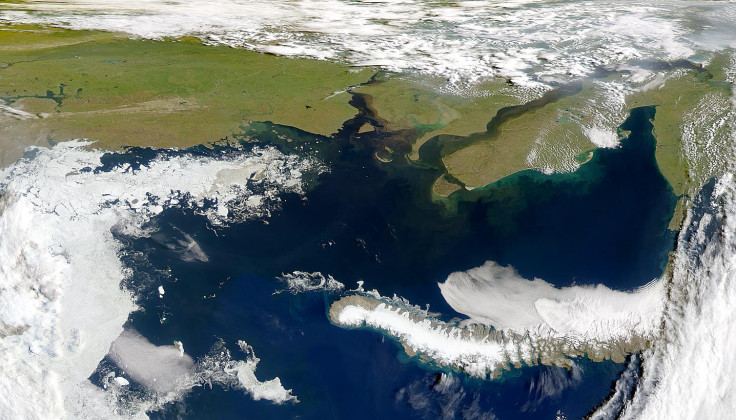Bonn climate talks: Scientists invoke permafrost threat to induce urgency

A warming climate could thaw the Arctic permafrost releasing around 1500 billion tonnes of carbon locked beneath, to further accelerate the process, scientists have warned negotiators at the Bonn climate talks.
Ice melts from Arctic and the Antarctic could raise sea levels by many metres.
All this is ongoing and not projections of a distant future, experts said stressing the need for a climate deal to halt irreversible climate change.
Negotiators in Bonn are seeking to streamline a draft global climate pact, which is scheduled to be adopted at a UNFCC conference in Paris in December. But the 11-day meet nearing the end has not achieved anything significant so far.
The 90-page draft document has been pared down by a mere 5%. A condensed text is viewed as important to achieve success at Paris.
The amount of carbon stored in permafrost in the northern hemisphere is estimated to be about twice as much as that in the atmosphere, said Susan Natali, a researcher with the Woods Hole Research Center in Massachusetts.
"By 2100 we expect 130 to 160 gigatonnes of carbon released into the atmosphere," Natali told journalists in Bonn. "That is on par with our current rate of US emissions as a result of fossil fuel and cement production."
"While there is some uncertainty, we know that permafrost carbon losses will be substantial, they will be irreversible," she added.
The team projected permafrost loss of between 30% and 70% by 2100, with the lower estimate based on strict cuts that limit overall global warming to two degrees Celsius over the pre- industrial revolution period and the highest under unrestrained emissions.
Ricarda Winkelman of the Potsdam Centre for Climate Research in Germany warned the meet of dramatic sea level rise from Antarctic ice sheet melt.
Noting that the ice thickness actually exceeds 4,000 metres, she said sea levels would rise globally by five metres for the West Antarctic ice sheet melt and by 50 metres for the East Antarctic ice sheet.
Stressing that the effects are being seen already, Dirk Notz of the Max Planck Institute for Meteorology in Hamburg said Arctic sea ice could be gone by mid-century under high emissions scenarios, with half of it gone in the last decade alone.
The Bonn negotiations have seen renewed wrangling over enhanced commitments sought from rich nations. Other contentious issues are the sources of finance, scaling up funding to meet the $100bn (£646m) climate fund by 2020 and how to address forest financing.
The final document is expected to enshrine the pact by 195 countries to roll back climate change, spell out commitments to tackle greenhouse gases and provide aid to vulnerable economies from 2020.
© Copyright IBTimes 2025. All rights reserved.





















